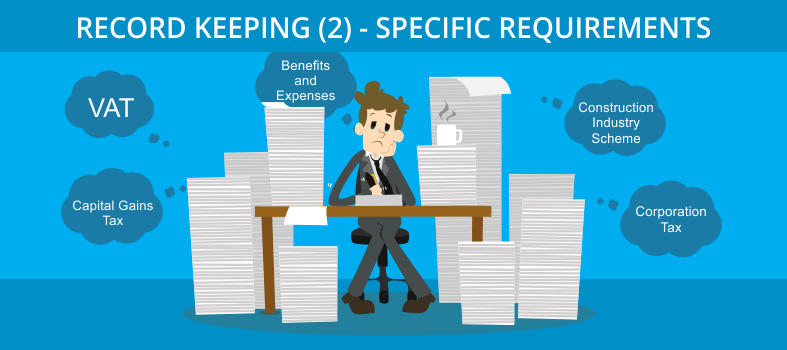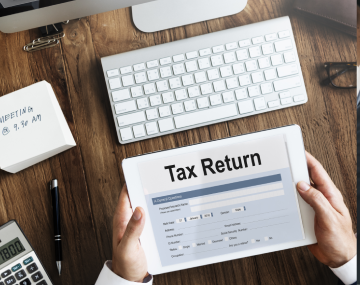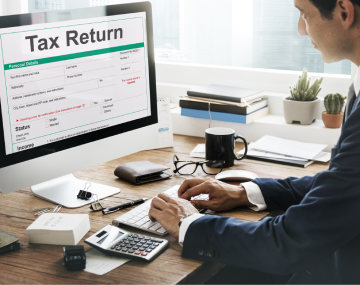Record keeping is the ugly little duckling among business activities. No one likes it. But without good business records no business is able to succeed. And that apart from the fact that bad records make the tax man unhappy, which is definitely not desirable because it can lead to fines, penalties and tax investigation.
From a business perspective, good records make it possible to attain business goals, assess and adjust strategies and ensure that the business stays on course. They are a long term necessity, however small the business may be.

From a tax perspective, good records are necessary to make correct and complete returns as required by HMRC and Companies House. According to HMRC estimates, inadequate records cost the Exchequer over £6 billion a year in tax revenue. The collection of these tax losses is very high on the government’s agenda.
The law requires that businesses can demonstrate they are meeting their tax responsibilities. From late 2012, HMRC started rolling out its Business Records Checks programme again, which was designed to educate and support businesses. This is accompanied by the intention to issue penalties for inadequate record keeping of up to £3,000.
Given these incentives to keep complete and timely business records, in this article you’ll find an outline of the general rules of keeping business records.
Overview
In the words of HMRC, "a person must keep and maintain records in order to make a correct and complete return or claim even if they don’t make a return or claim every year. The person must retain these records and supporting documents for a specified period."
A "person" can be a natural person filing income tax returns or claiming tax refunds for PAYE, or a legal entity such as an incorporated company or a charity.

General Rules
In general, records should be up to date and kept in sufficient detail for tax calculation, payments or claims. They must be kept for varying lengths of time depending on industry sector, type of business or tax and other circumstances.
The general rule is to keep records for at least six years. Some records may be kept for shorter periods. However, if these records are used for different types of tax returns with requirements of different lengths, they should be kept for the longer period. Details for different types of tax will be discussed in a subsequent article.
If original records cannot be kept for some reason, at least the information contained in these documents should be preserved in an easily accessible and legible form.
It is, however, generally recommended to keep original records whenever possible.

All businesses need to keep two types of records of their business activities: receipts for business transactions and for business expenses.
For moneys received, this would include sales invoices, credit card statements, bank statements, Paypal statements, paying in slips, till rolls and cash receipts issued.
Records for business expenses would include receipts for cash and other payments made, purchase invoices, credit card statements, bank statements, Paypal statements and cheque book stubs.
In addition, businesses also have to keep tax related records like business tax returns. These will vary depending on whether the company employs staff or pays VAT and on the legal form of the company, which in turn may also require additional documentation.
Employers are required by law to keep a number of PAYE related records such as payments to employees, National Insurance payments, benefits and expenses payments to employees, statutory payments such as sick leave and maternity leave, tax deductions as well as student loan payment deductions from wages.
VAT related records include VAT sales and purchase invoices, all export and import documents and a VAT account. In addition, VAT registered businesses must submit quarterly VAT returns, which must also be kept.
For incorporated businesses such as limited companies, the law requires that they keep the Articles and Memorandum of Association and records of dividend allocations and payments. Tax related records specific to limited companies are Corporation Tax returns, annual returns and a set of signed accounts at Companies House.
In Record Keeping (2) we shall be looking at specific requirements for
- Benefits and Expenses
- Capital Gains Tax
- Construction Industry Scheme
- Corporation Tax
- PAYE
- Self Employed
- Trustees
- VAT
For help with or advice on keeping records, call us on 01023 456 789 or complete the contact form below. We’ll be happy to help you.
Any questions? Schedule a call with one of our experts.








